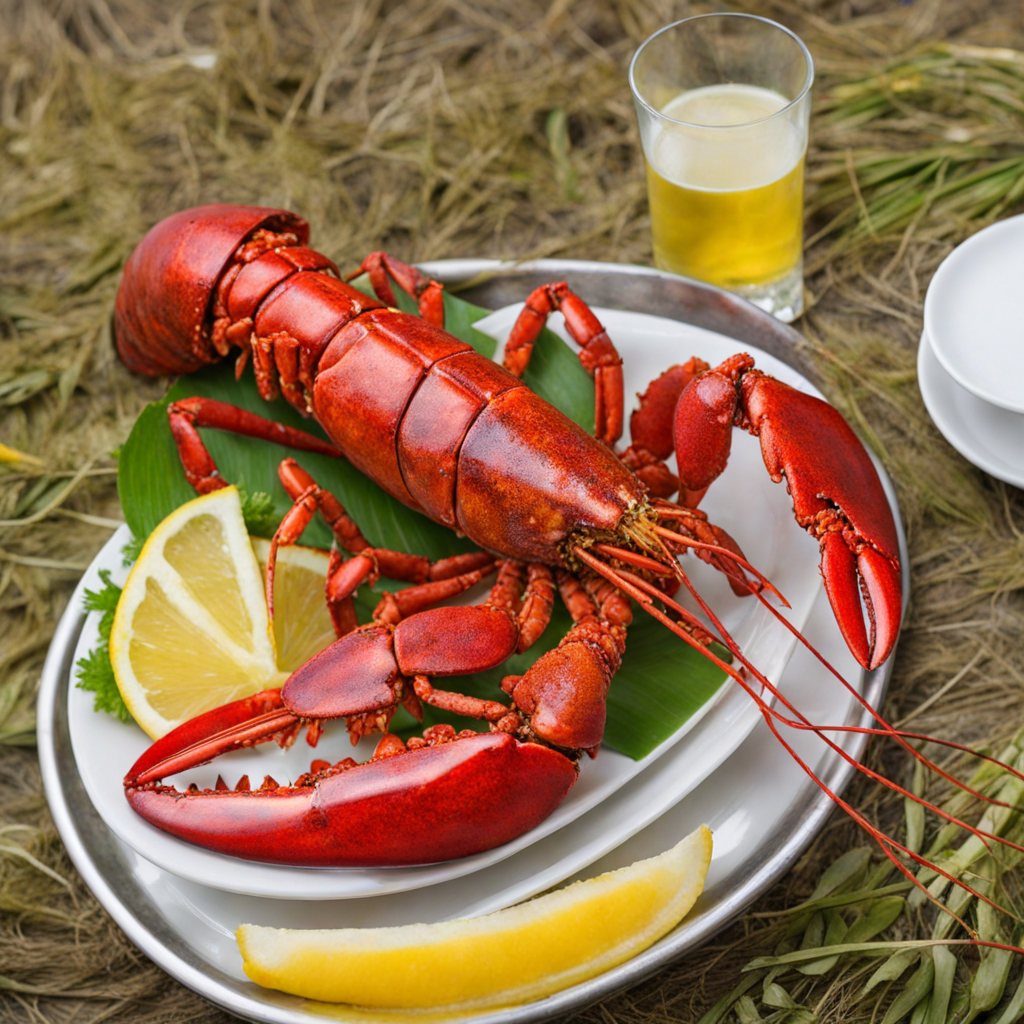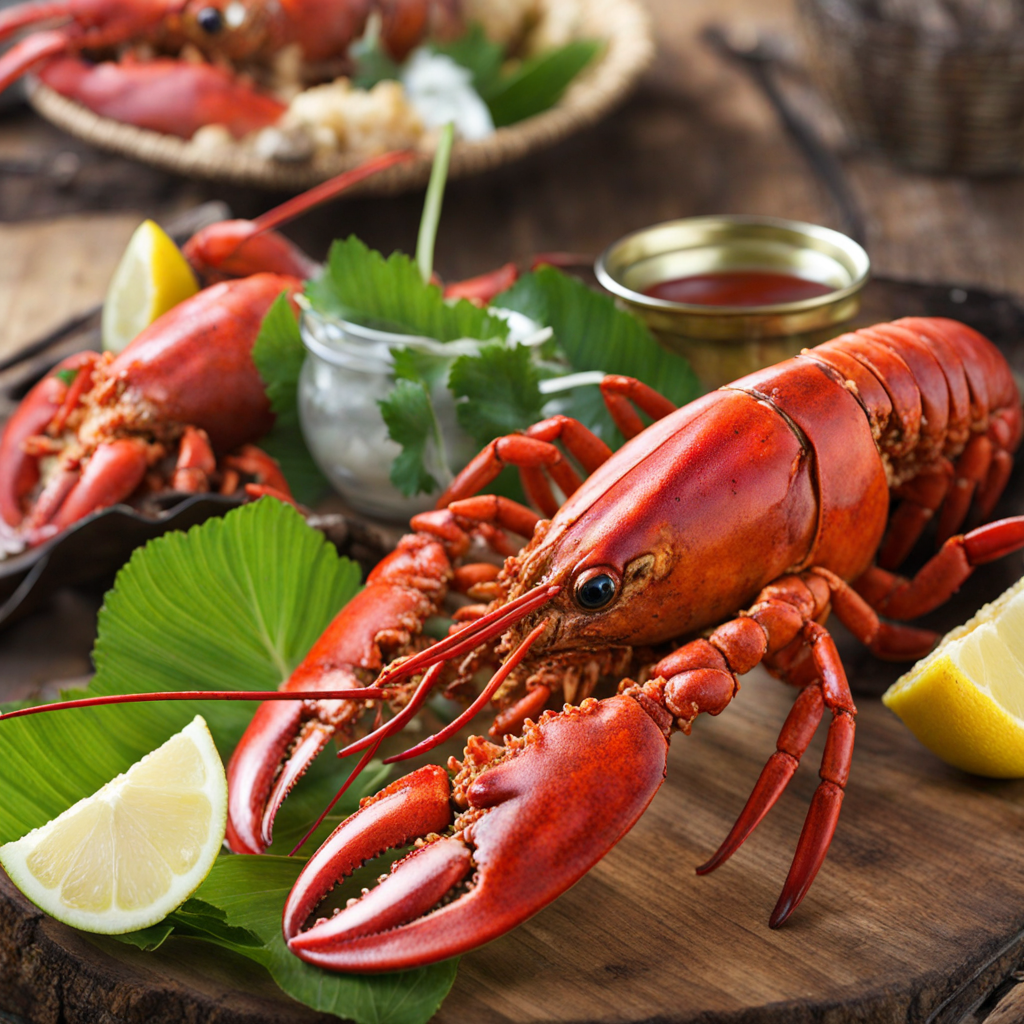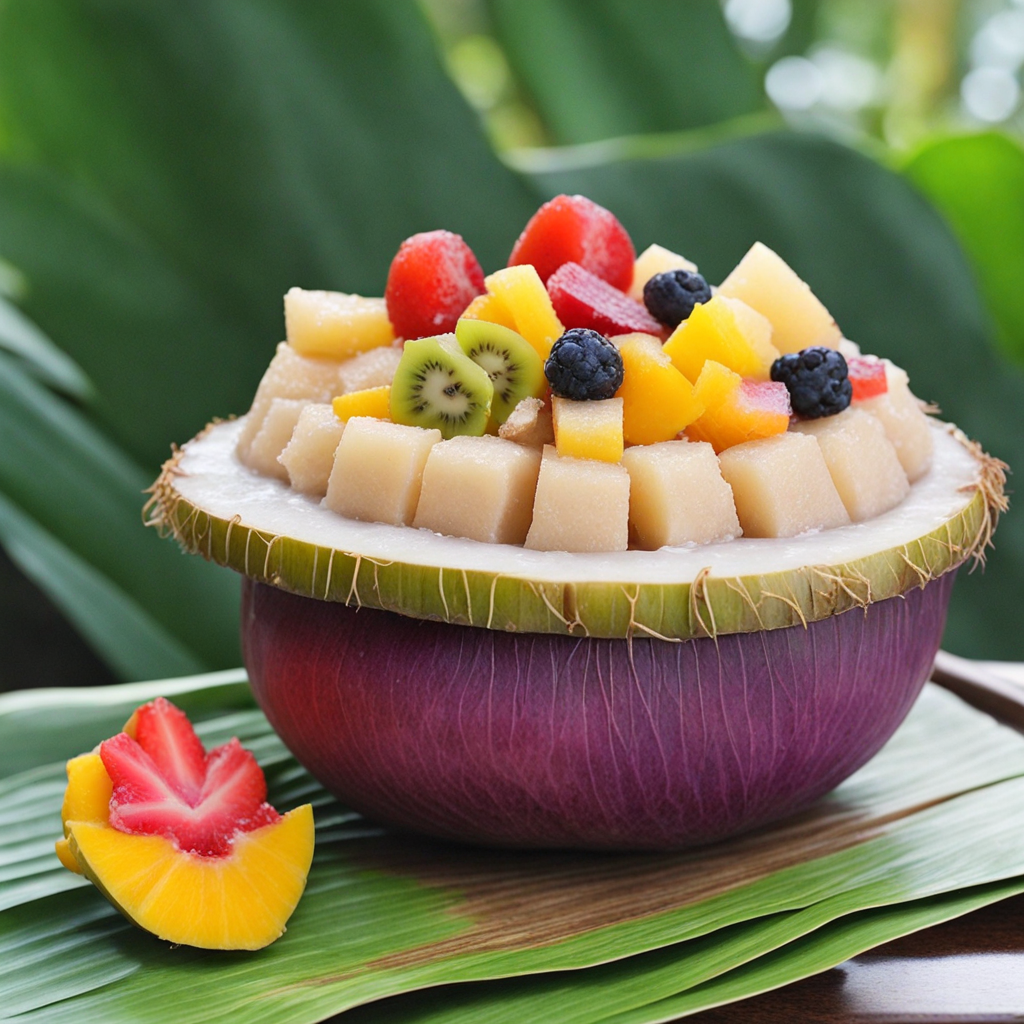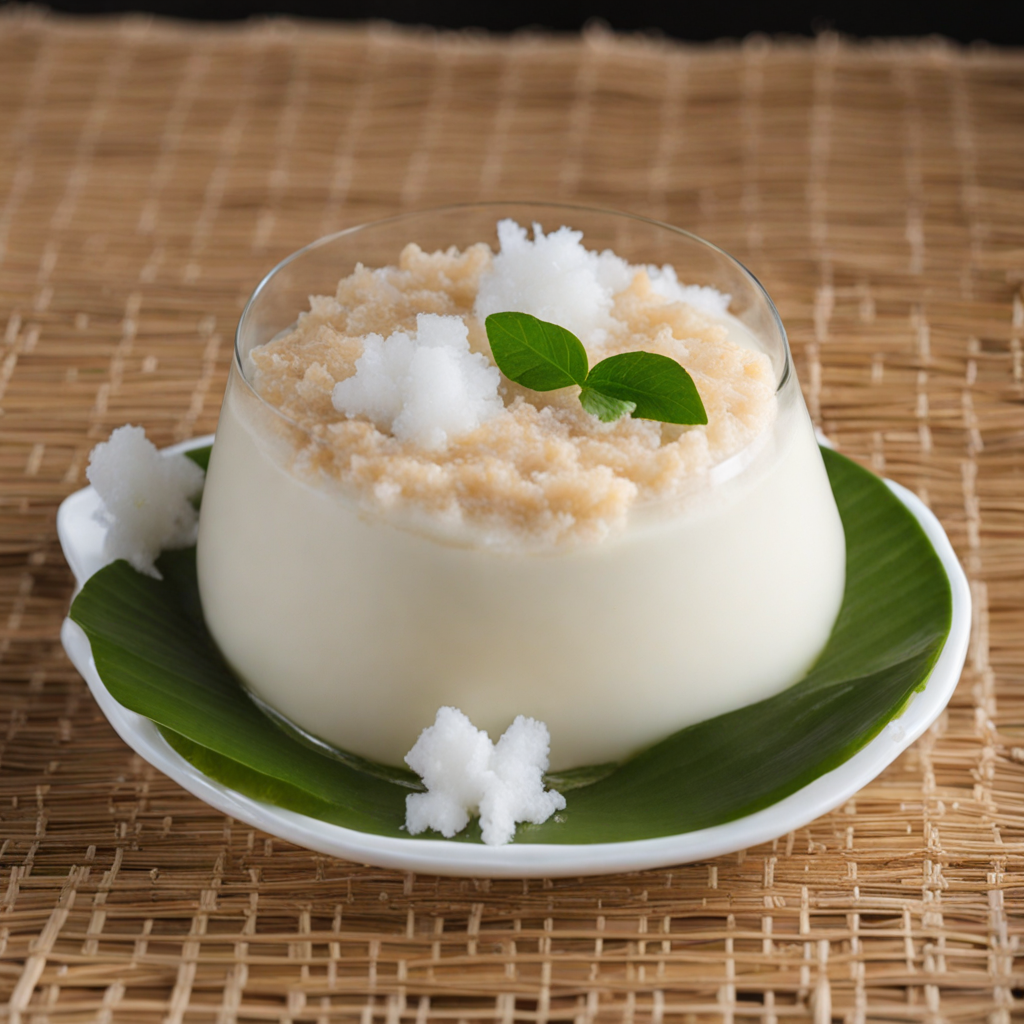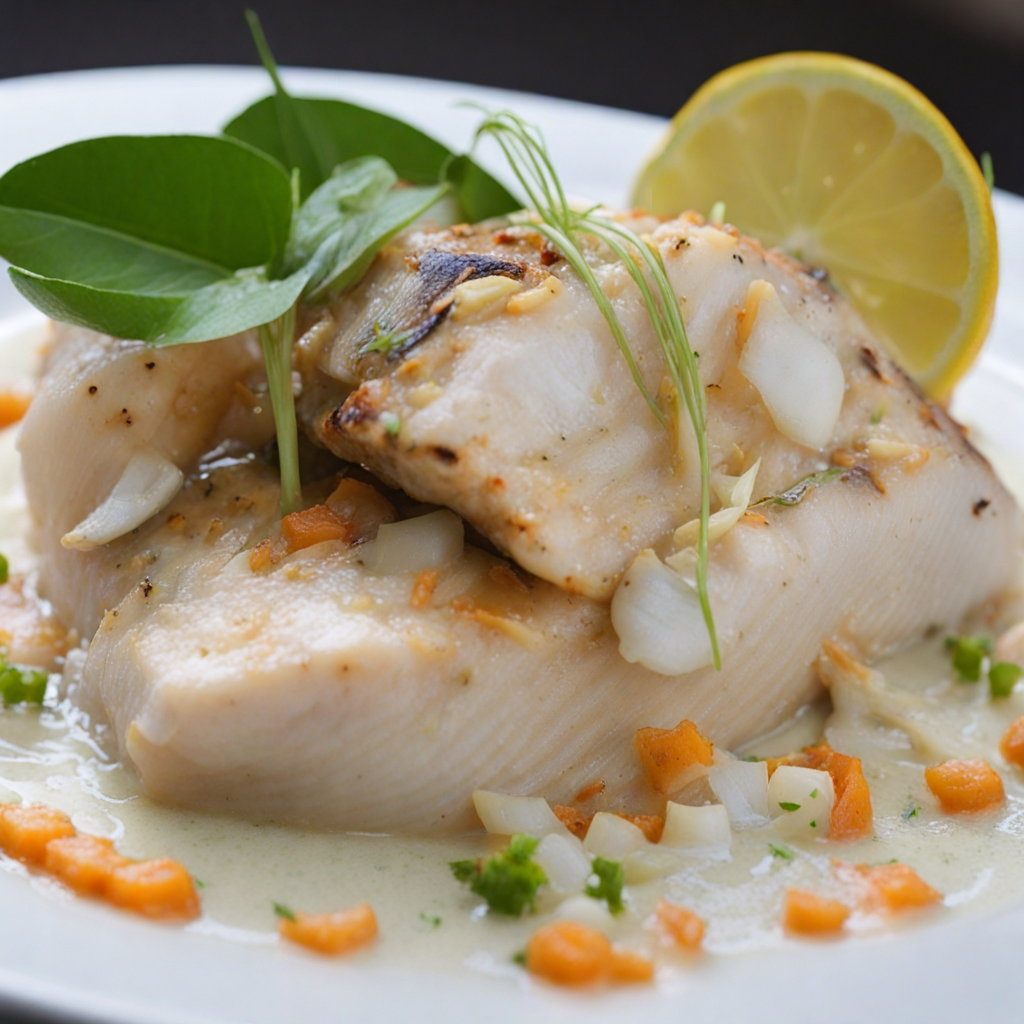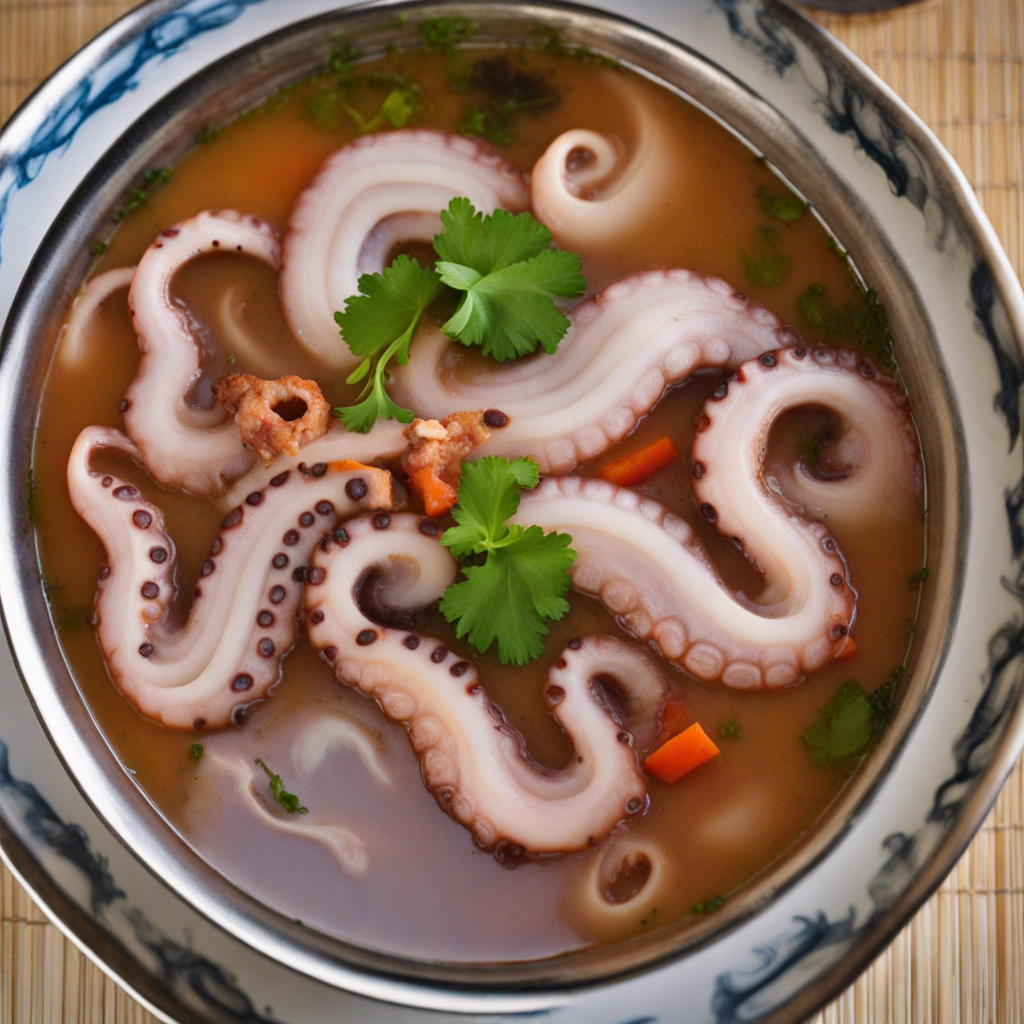Lobster
Lobster from Tuvalu is a culinary delight that embodies the essence of the Pacific Islands. This crustacean is celebrated for its tender, sweet meat and is often prepared in a way that highlights its natural flavors. The lobsters are typically caught fresh from the surrounding crystal-clear waters, ensuring that each bite is a testament to the pristine marine environment of Tuvalu. Whether grilled over an open flame or steamed to perfection, Tuvaluan lobster offers a succulent texture that melts in your mouth, making it a standout dish among seafood lovers. The preparation methods for Tuvaluan lobster can vary, but they often include simple seasonings that enhance rather than mask the lobster's inherent sweetness. A popular way to enjoy it is with a drizzle of coconut cream, which adds a rich, tropical flavor that complements the lobster beautifully. Additionally, local herbs and spices, such as garlic and chili, are sometimes used to create a tantalizing marinade that brings a burst of flavor to each bite. The dish is usually served with a side of freshly picked vegetables or a tangy dipping sauce made from lime and chili, further elevating the dining experience. What makes Tuvaluan lobster truly special is not just its taste but the cultural significance it holds within the local community. Lobster is often featured during celebrations and gatherings, symbolizing abundance and hospitality. Dining on lobster in Tuvalu is not just a meal; it's an experience that invites you to savor the flavors of the ocean while connecting with the vibrant culture of the islands. Each bite tells a story of the sea, the land, and the people who cherish this delicacy, making it a must-try for anyone seeking to explore new culinary horizons.
How It Became This Dish
The Story of Lopsta: A Culinary Treasure of Tuvalu Origin and Historical Context Lopsta, a delightful dish deeply rooted in the culture of Tuvalu, reflects the island nation’s rich maritime heritage and the bounty of its surrounding waters. Tuvalu, a small archipelago located in the central Pacific Ocean, is comprised of nine islands and is known for its stunning coral reefs, turquoise waters, and vibrant marine life. The people of Tuvalu, predominantly Polynesian, have relied on the sea for sustenance for centuries, and Lopsta epitomizes this symbiotic relationship with the ocean. The origins of Lopsta can be traced back to the traditional practices of fishing and gathering that have sustained Tuvaluans for generations. As an island nation, Tuvalu’s inhabitants have developed a cuisine that showcases the local seafood available, and Lopsta is no exception. The dish primarily features fresh lobster, which is abundant in the waters around the islands. The name "Lopsta" itself derives from the English word "lobster," reflecting the influence of colonial contact and globalization on local culinary practices. Ingredients and Preparation Lopsta is characterized by its simplicity, highlighting the natural flavors of its primary ingredient—lobster. The dish is often prepared with minimal seasoning to allow the sweetness of the lobster meat to shine through. Traditionally, the lobster is boiled or grilled, and it may be served with a side of coconut cream, lime, or a light dipping sauce made from local herbs and spices. The use of fresh ingredients is paramount in Tuvaluan cuisine, and Lopsta is a testament to this philosophy. In addition to lobster, the preparation of Lopsta may include other local ingredients such as taro, breadfruit, or cassava. These starchy side dishes complement the richness of the lobster and provide a well-rounded meal. The cooking techniques employed in preparing Lopsta are often passed down through generations, with families preserving their unique methods and recipes. Cultural Significance Lopsta is more than just a meal; it is a symbol of Tuvaluan identity and community. Lobster fishing is a communal activity, often involving families and friends who come together to catch, prepare, and enjoy the catch. The act of sharing Lopsta during gatherings and celebrations reinforces social bonds and reflects the Tuvaluan ethos of community. Cultural events, such as feasts and festivals, often feature Lopsta as a centerpiece. It is commonly served during significant occasions like weddings, birthdays, and national holidays, where the dish symbolizes hospitality and abundance. The presence of Lopsta on the table signals the importance of the event and the value placed on communal sharing and togetherness. Moreover, Lopsta also plays a role in the economy of Tuvalu. The lobster fishing industry, particularly in the outer islands, provides livelihoods for many Tuvaluans. The export of lobster contributes to the nation’s economy, making it an essential resource for both sustenance and trade. As a result, the dish embodies not just cultural significance but also economic importance, linking tradition with contemporary realities. Development Over Time As Tuvalu has navigated the complexities of modernization and globalization, so too has the preparation and consumption of Lopsta evolved. In the past, traditional methods of fishing and cooking were predominantly practiced, with families relying on their knowledge of local waters and seasonal catches. However, with the advent of tourism and increased international interest in Tuvaluan culture, there has been a shift in how Lopsta is presented. Today, Lopsta is not only enjoyed by locals but also by tourists who visit Tuvalu. Restaurants and resorts often feature Lopsta on their menus, showcasing the dish to a wider audience. This exposure has led to a fusion of traditional and contemporary culinary practices. While many establishments still honor the classic preparation methods, others have introduced innovative twists, such as incorporating international flavors or modern plating techniques. Despite these changes, the essence of Lopsta remains intact. It continues to be prepared with fresh, local ingredients, and the spirit of communal sharing is preserved. Family recipes are often shared with visitors, allowing for a cultural exchange that enriches both the locals and their guests. Challenges and Preservation As Tuvalu faces the challenges of climate change, rising sea levels, and overfishing, the future of Lopsta and its cultural significance is a topic of concern. The sustainability of lobster populations is critical, as it directly impacts the availability of this beloved dish. Efforts are being made by local communities and organizations to promote sustainable fishing practices, ensuring that future generations can continue to enjoy Lopsta as part of their culinary heritage. Moreover, cultural preservation efforts are underway to document traditional recipes and cooking methods. Elders in Tuvalu are increasingly recognized as custodians of culinary knowledge, and initiatives are being launched to pass down these traditions to younger generations. Workshops and cooking classes are becoming popular, allowing Tuvaluans and visitors alike to engage in the preparation of Lopsta and learn about its cultural significance. Conclusion Lopsta is more than just a dish; it is a celebration of Tuvalu’s maritime culture, community spirit, and culinary heritage. From its humble origins as a traditional meal prepared by families to its status as a symbol of hospitality and economic importance, Lopsta encapsulates the essence of life in Tuvalu. As the nation continues to adapt to the challenges of the modern world, the story of Lopsta serves as a reminder of the importance of preserving culinary traditions while embracing innovation. Through the lens of this beloved dish, we gain insight into the resilience and creativity of the Tuvaluan people, ensuring that Lopsta will remain a cherished part of their cultural identity for generations to come.
You may like
Discover local flavors from Tuvalu


